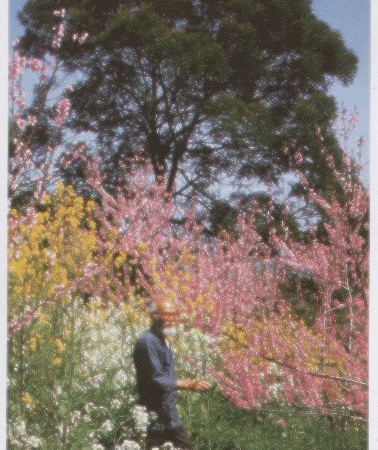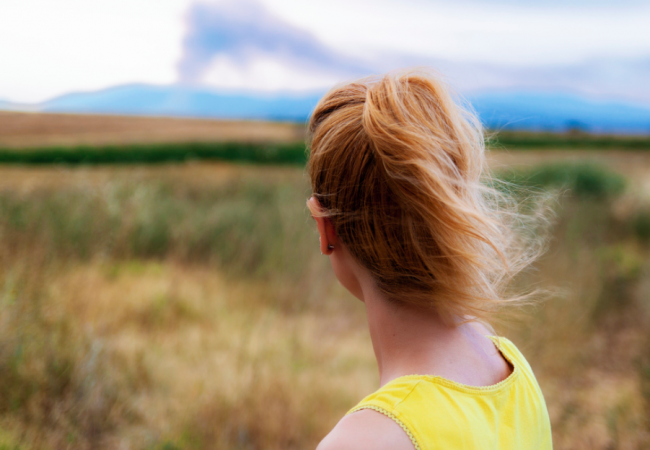She spent 10 years building a name for herself and the money rolled in. So what happened next?

Masanobu Fukuoka on Natural Farming, Philosophy and Doing Nothing
Masanobu Fukuoka was a Japanese farmer who, more than any other philosopher, scientist or practical man I have read thus far, found a solution to today’s problems.
This is his story:
Fukuoka caught pneumonia in his mid-twenties and was left alone in hospital without company. Dancing with death, he questioned his prior existence and the life he led. He survived but left a changed man.
Soon after, he climbed a hill overlooking the harbour and collapsed underneath a tree. In a daze he watched the harbour grow light, seeing the sunrise, ‘yet somehow not seeing it.’
‘As the breeze blew up from below the bluff, the morning mist suddenly disappeared. Just at that moment a night heron appeared, gave a sharp cry, and flew away into the distance.’
Fukouka experienced a change of heart,
‘Everything I had held in firm conviction, everything upon which I had ordinarily relied was swept away with the wind.’
He resigned from his job and created a natural farm. This was in 1938.
Fukouka wanted to practice what he had envisioned that night under the hilltop tree: a philosophy of returning to nature and understanding time as an illusion. In this article, I am going to focus on the first part, returning to nature with natural farming.
Fukouka started experimenting with natural farming of which he developed four principles:
The 4 Principles of Natural Farming
- No Cultivation – no plowing or turning of the soil
- No Chemical Fertilizer or Pre-Prepared Compost
- No Weeding by Tillage or Herbicides
- No Dependence on Chemicals
Fukouka rejected the scientific method and modern agriculture arguing that one can grow yields as large as, if not larger than those with chemicals, by allowing nature do its work for you.
For 40 years he worked on his farm growing rice, citrus fruit trees, barley, rye, vegetables and thousands more varieties and created The One-Straw Revolution.
Without the use of machinery, chemicals, fertiliser or large water management systems, he harvested some of the largest yields of rice and fruit in the whole of Japan.

Scientists and modern agricultural farmers from around the world came to him to learn how and why. They scratched their heads with what they saw:
Fukouka did not flood his rice fields as farmers had assumed they were to do, for it was the way ancestors had done it for hundreds of years. He let rice grow dry, amidst the grasses, weeds and insects. After harvesting the rice he would throw the cuttings of straw back on to the fields here and there and seed wheat and rye at the same time. He let ducklings run wild through the fields and did not use compost or any chemicals. He did not even sow seeds by pushing them into the soil, but scattered them in the fields within clay pellets.
Fukouka’s success brought him global recognition with India’s Prime Minister inviting him to advise the Government on how to turn yellow desert plains into green fields, and the state of California asking for his assistance for their own barren sands.
Why Fukouka’s Natural Farm Is The Solution To Everything
Fukouka’s natural farm was so productive and yielded so much food that half an acre, which is about 45m x 45m, was enough land for up to 5 people to survive on all year round.
There is currently 7.68 billion acres of arable land in the world, approximately the same as the global population. (Note – this is current arable land, not just total land mass). One acre per person, which as Fukuoka proved over 40 years, is more than enough to feed us all.
What’s more, he proved we can all farm and eat in a way that’s conducive with nature. In a way that improves soil quality, not erodes it. Increases insect and wild animal numbers, not decreases them. And maximises energy output for minimal energy input.

Fukouka reckoned his do-nothing approach to farming eventually required just one hour a day of work, except during harvest time when two to four days was required with a handful of people. He said the rest of the time could be spent leisurely with others of the village.
Sustainable fresh food for one hour of work per day. Humanity does not need anything more than that, Fukouka argued, but he understood this was a matter of philosophy.
Fukouka’s Philosophy
Everything for Fukouka was about philosophy. He said, ‘before researchers become researchers they should become philosophers’.
Why? Because he rejected research for the sake of research. Academics and scientists should first develop their human goal – a reason for why they’re doing the work. What will they create for human kind?
Most often, where we think we have created a scientific achievement, for example a pest control that rids wheat, barley or rice of stalk damage by beetles, we create secondary problems such as the death of beetle predators who helped spread the seeds of the plants in the first place. Another chemical must then be invented to solve that problem, and so on and so forth.
‘The irony is that science has served only to show how small human knowledge is.’
A second irony is that Fukouka’s natural farming is actually the cheapest method and yet these days fetches the most in the market for it’s labelled as a premium, ‘organic’, ‘natural’, ‘free-from’. However chasing profit is not the goal but rather the core problem:
Modern agricultural farmers must purchase all kinds of fertilisers, chemicals and machinery, then must sort their fruits into the best and worst, spend money polishing, cleaning and sometimes even waxing them before sending to the merchants who only pick about 30% of the best. As soon as one chases profit, one enters a race to the bottom with others and end up working more and more for less and less.
If there was a 100% uptake of natural farming, Fukouka said, most of today’s problems would be solved. The rest, life and death including, was a matter of philosophy (which we’ll discuss another time).

The Problem With Fukouka’s Natural Farming
Fukouka’s natural farm occupies a strong place in my mind. I envision it as the end goal of my life, walking amid citrus fruit trees and beside herbs and vegetables all growing hither thither, insects and bees buzzing away.
Now, aside from the anal counter-argument that this is Fukouka’s opinion of what ‘nature’ looks like and that nothing we create can truly be ‘natural’, the problem is how to get the land.
Fukouka’s father had a farm which he took over and somehow he gained use of unused hillsides simply by planting on them. Luck.
In the UK, and I imagine many other countries of high population density, land costs a lot of money. At the time of writing, arable land (without housing or the right to build housing) costs approximately £10,000 – £30,000 per acre with a minimum of about 6 acres. You’re looking at £60,000+ cash (because you can’t get mortgages for arable land). There is no way to get this money without working in the capitalist world that Fukouka so despised.
It is possible to work for a farm without owning it. WWOOF is an organisation that lets you volunteer at farms around the world in exchange for food and accommodation. Similarly, my great-grandfather, John Middleton-Murry, wrote a book called Community Farm which was a diary of his co-operative: townsmen without capital could work on his farm, earning a share in it every year they stayed. Eventually they owned it together and I see this as a sensible solution of transferring wealth in a way that does not put the original capital investor out of pocket. Yet I know few with such capital that have the moral imperative to do such a thing.
Here lies the rub: Fukouka has the answer but those who want to implement it cannot because of the forces against them. One cannot walk up a hill and start planting with certainty without risk of imprisonment for trespassing. One cannot go to a country of vast open lands such as Australia, the continent of Africa, America or Siberia and start planting for restrictions on visas. Thus one turns to the deferred lifestyle plan of earning now (perpetuating the problem for the time being) and sorting it out later. Yet, as the history of generations upon generations has shown, this does not work.
We must find another path to Fukouka’s farm.
Previous Post: Which road?

